It has occured to me that unless sites like Victor Cheng's caseinterview.com and preplounge existed we all (undergraduate candidates) would be woefully unprepared. The company websites mention "practising a few cases" and "thinking about your motivation" a week or so before the interview - yet surely they must know that most candidates spend at least +20h on live practice cases alone. Likewise, it is only from websites like these that I would know that I need to understand how to do DCF, NPV etc in a case. Yet the firms claim that they hire from any discipline (as if knowing what DCF is innate knowledge). Why do firms underplay the extent of business knowledge that is needed?
Why aren't MBB (and other firms) upfront about the amount and type of of preparation required to be successful at interview?
Overview of answers
-
Upvotes
-
Date ascending
-
Date descending
A number of comments here:
1) Firms underplay it because they don't want candidates that will be good at interviews as a result of countless hours of practice - they want candidates that demonstrate the key skills/qualities that consulting firms look for. To demonstrate the core of these, 5-10 hours of proper practice was typically seen as enough. Firms don't want to miss out on potential strong candidates just because they were not aware about consulting 6 months before interviewing and could dedicate countless hours to prep - so major firms at target schools often have case-workshops to try and limit this bias.
2) In a way, it is due to sites like Victor Cheng and PrepLounge that has led to the requirement for most people to do many more hours of practice. As everyone has access to more and better material, the average quality of interviews increases - so firms have to be more selective, and the "passing criteria" have become more and more demanding.
3) Finally, on your point about DCF - I think this is a huge misconception. If you are applying from undergrad or from a non-business background, you will not be expected to understand DCF, NPV, etc. Part of the reason people think this is expected is because most case resources come from business school (MBA) case books - where students learn these topics, and see firms might choose to test them on their knowledge. However, I can guarantee that if you are applying to MBB out of undergrad, you will never be expected to know these technical terms/methods, or be penalised for not knowing them. The only exception might be if you are applying to a very specific role within a company (e.g. M&A advisory) where e.g. NPV might be particularly important.
Hope this clarifies some of your questions.
Honest answer: Because if you're not able to find that out on your own, you're probably not cut out to be a successful consultant.
That being said, I don't believe it is necessary to do 20+ hours of live cases to pass such an interview. Even MBB only cook with water, and too much preparation can also lead to "analysis paralysis". There are definitely diminishing returns, maybe even negative returns to prepping too much.
You easily come across as a robot that memorized everything, rather than an authentic, intelligent human being. I personally always prefer a candidate who is able to think on his or her feet, can creatively tackle problems and who has the openness and backbone to admit when they don't have a clue over someone who has memorized 327 frameworks and 713 brain teasers but is about as relaxed and authentic as Cher's face these days...
To me, talent, raw intelligence, creativity, and personality beat preparation 10 times out of 10 (I mean as long as it's not evident that the candidate just is sloppy and doesn't give a f*ck). Facts and methods can be taught, those qualities can't.
(edited)
Related Products
McKinsey Solve Game Simulation Package by Francesco
- Play for Real the Ecosystem Game (Coral Reef & Mountain Ridge)
- Play for Real the Redrock Game (All 4 Phases Included)
- Receive for FREE the Imbellus Solve Combo and McKinsey Imbellus Game Secrets Guide
Premium Membership (1 week)
- ALL the resources you need for your case interview preparation
- Unlimited meetings with peers
- Access to #number-of-cases# cases, video tutorials, and 220+ case interview exercises
Break Into Consulting - Strategy Consulting Firm's All-In-One by Alexandre
- Created by 2 BCG consultants
- Covers most strategy consulting firms
- Get you to the backstage of the strategy world
Break Into Consulting - Industry Overviews by Alexandre
- Created by 2 BCG consultants
- 15+ industries covered
- Practical tips to master any industry
Break Into Consulting - Frameworks I wish I knew by Alexandre
- Created by 2 BCG consultants
- Covers most interview cases
- Practical tips to crack the case
BCG Online Case Combo: Software Simulation by Francesco
- Practice with 6 Chatbot Tests (Casey Style), including 4 Software Simulations
- Test Yourself with 4 Live One-Way Video Interviews (with AI Generated Tips)
- Receive for Free the BCG Online Case Secrets Guide
BCG Online Case Secrets by Francesco
- Master the 5 Types of Questions Asked by the Chatbot
- Discover the Exact Steps to Prepare for the 1-Minute Video Assessment
- Prepare in Advance by Solving 2 Complete Chatbot Cases
Imbellus Solve Combo: Guide + Videos by Francesco
- Watch how to Crack the Ecosystem Game in 23 Minutes
- Find Out how to Master each of the 4 Phases of the Redrock
- Receive for FREE the McKinsey Imbellus Game Secrets Guide
Imbellus Test at McKinsey – Guide by Luca
- Detailed and full game analysis
- Hands-on example to solve the game and support you
- Practical tips to crack the game
McKinsey Imbellus Solve Game Secrets by Francesco
- Learn the Exact Steps to Crack the 6 Games of the Imbellus
- Discover the Proven Way to Master the 5 Skills Tested in the Game
- Create your Ecosystem Chain Automatically with the Automated Excel Included
The Secret McKinsey PEI Cheat Sheet by Robert
- Learn how to correctly prepare and structure your McKinsey PEI
- Impress your McKinsey interviewer with a perfect PEI
- Save tons of time in your PEI prep
BCG Potential Test #2 by Gaurav
- BCG Potential Test with 23 questions about "World Electrification Case"
- Created by ex-MBB interviewer Gaurav
- Format and style for a real test experience
BCG Potential Test #1 by Francesco
- BCG Potential Test with 23 questions about "CoverCell Case"
- Created by ex-BCG consultant Francesco
- Format and style for a real test experience
Prep Guide for McKinsey PST by PrepLounge
- McKinsey PST preparation guide incl. 13 pages of useful tips
- Created by ex-McKinsey consultants
- Detailed information on test structure, question types & core skills
McKinsey PST #3 by Riccardo
- PST with 26 questions about "Delicious Juice Case"
- Created by ex-MBB consultant Riccardo
- Industries: Beverage, tourism, pharma
McKinsey PST #2 by Gaurav
- PST with 26 questions about "WeKlin Case"
- Created by ex-McKinsey consultants
- Industries: Retail, energy, franchise
McKinsey PST #1 by PrepLounge
- PST with 26 questions about "FloraFashion Case"
- Created by ex-McKinsey consultants
- Industries: Retail, energy, franchise
Premium Membership (6 weeks )
- ALL the resources you need for your case interview preparation
- Unlimited meetings with peers
- Access to #number-of-cases# cases, video tutorials, and 220+ case interview exercises
Related Articles
Related Cases
Related Case Interview Basics article(s)
Influence Model
The Influence Model by McKinsey emerged in the early 2000s and is the result of practical experience of the consultants at McKinsey & Company.
Bain Sova Test
The Bain Sova Test is an aptitude test for applicants to Bain & Company. The test consists of 4 areas and is used at Bain for job interviews in consulting.
McKinsey Growth Pyramid
Structured framework for sustainable corporate development, including market penetration, product development, market development and diversification.
How to Start The Case Interview Preparation
Learn the basics of a real consulting case interview and repeatedly train the skills you need to ace your real case interview at MBB or the Big Four.
GROW Model
Discover the secrets to Goal setting, Reality checking, Options exploring, and Way forward planning that will redefine your path to success.
Related Products

McKinsey Solve Game Simulation Package by Francesco

Premium Membership (1 week)
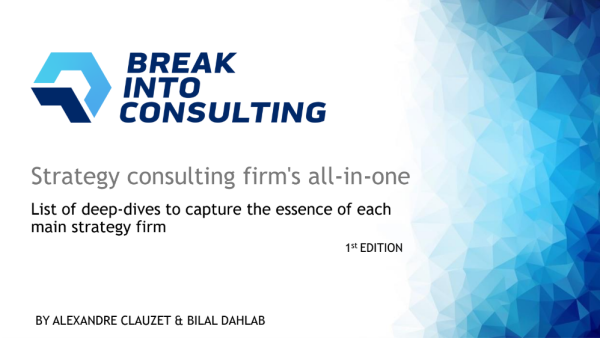
Break Into Consulting - Strategy Consulting Firm's All-In-One by Alexandre
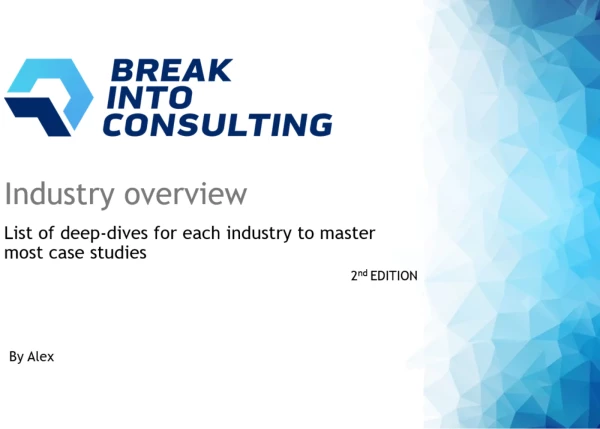
Break Into Consulting - Industry Overviews by Alexandre
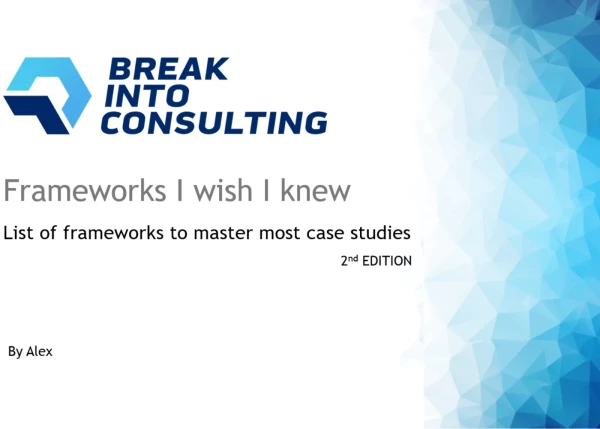
Break Into Consulting - Frameworks I wish I knew by Alexandre
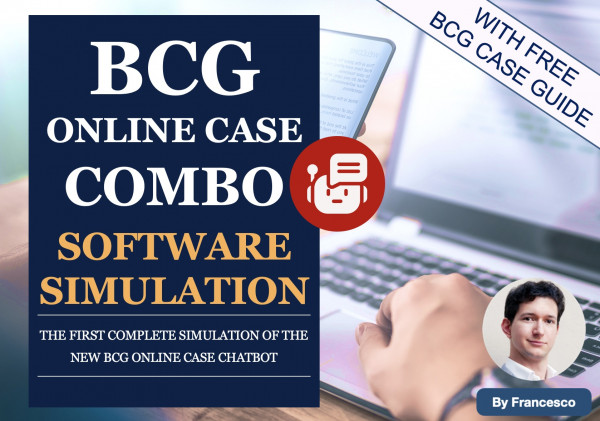
BCG Online Case Combo: Software Simulation by Francesco

BCG Online Case Secrets by Francesco

Imbellus Solve Combo: Guide + Videos by Francesco
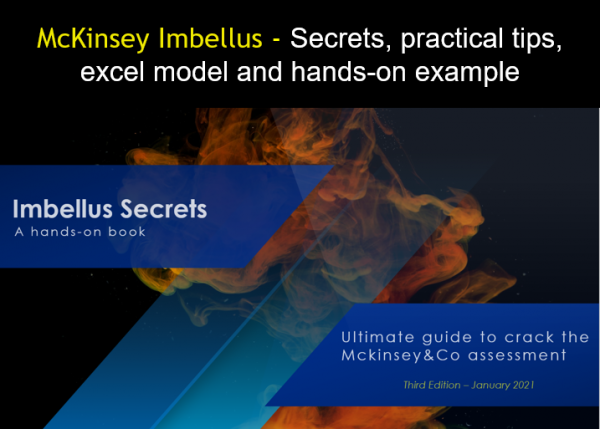
Imbellus Test at McKinsey – Guide by Luca

McKinsey Imbellus Solve Game Secrets by Francesco

The Secret McKinsey PEI Cheat Sheet by Robert
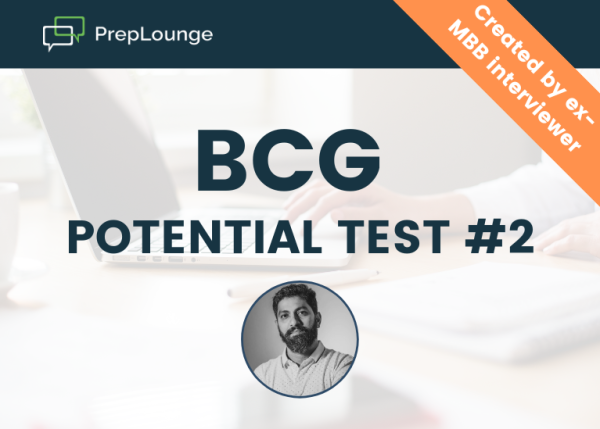
BCG Potential Test #2 by Gaurav
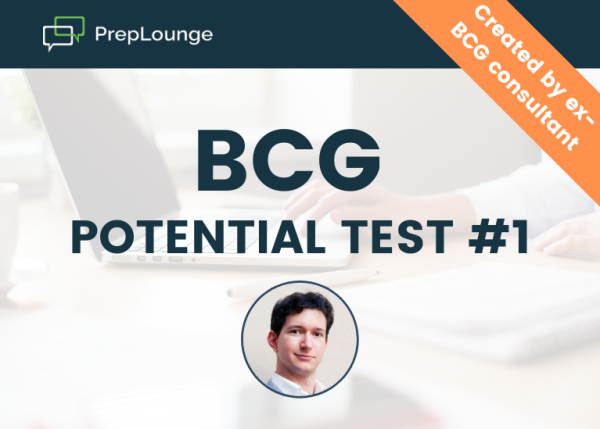
BCG Potential Test #1 by Francesco
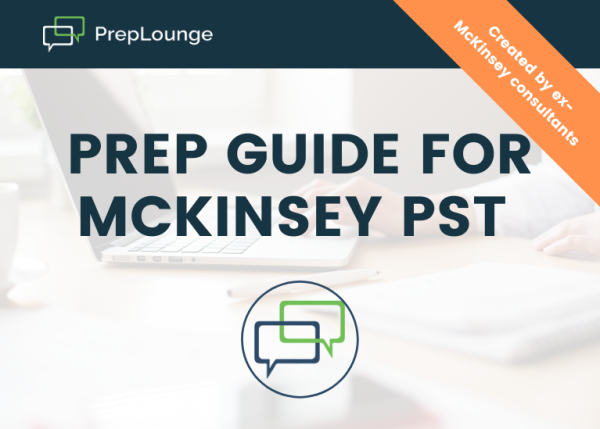
Prep Guide for McKinsey PST by PrepLounge
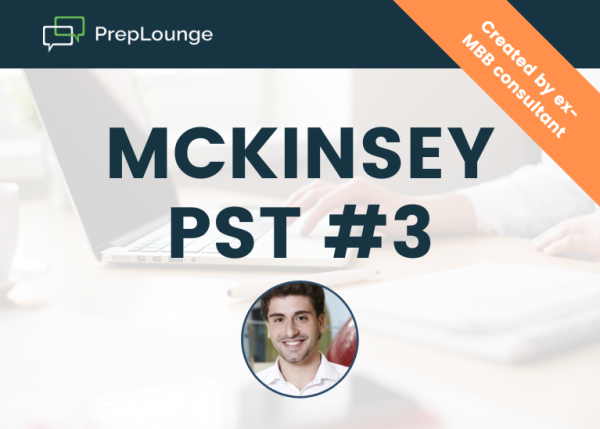
McKinsey PST #3 by Riccardo
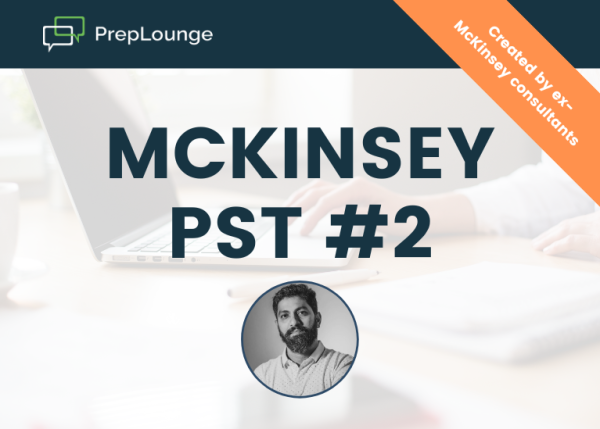
McKinsey PST #2 by Gaurav
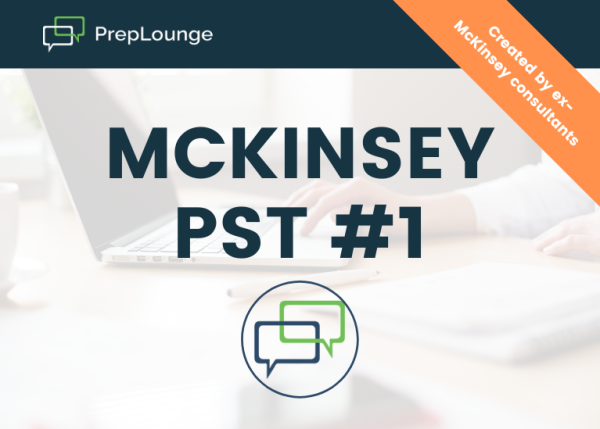
McKinsey PST #1 by PrepLounge






Thank you for clarifying Alessandro! In that case, what exactly is expected of undergraduate (and ug non business) candidates in terms of knowledge concerning economics, business concepts, finance concepts/technical knowledge etc?
(edited)
Don't agree. Every candidate is expected to know the basic concepts like NPV. What if the objective of the case is to calculate NPV?
Vlad, I have never seen a case given at undergraduate level that includes this concept. I also attended McKinsey workshops where they explicitly said you don't need to know NPV or DCF. Understanding it would certainly not hurt and could lead to some interesting discussions, but there won't be an undergraduate case to calculate NPV, full stop.
Vlad and Alessandro, your disagreement strikes at the core of why a lot of undergraduate candidates are confused about what is required......